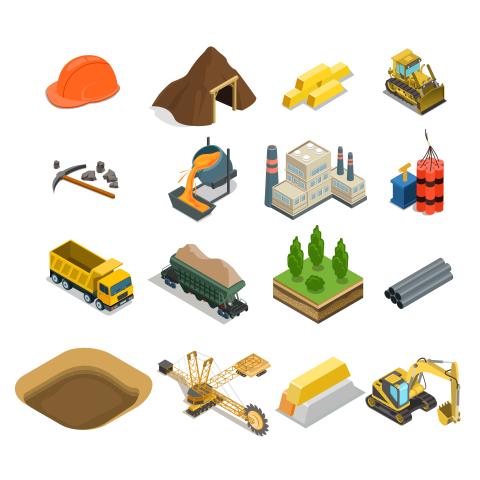European Economic
and Social Committee
EESC proposes measures to support investment in the extraction and recycling of critical raw materials
At its March plenary session, the European Economic and Social Committee (EESC) adopted an opinion issued by the Consultative Commission on Industrial Change (CCMI) which proposes supporting investment in the exploration and extraction of critical raw materials, as well as in the use of secondary materials from wastes, as this is essential to the green transition in the EU.
In September 2020, the European Commission adopted its Action Plan on Critical Raw Materials, with the aim of reducing dependency on primary critical raw materials and strengthening domestic sourcing of raw materials in the EU. The opinion adopted by the EESC welcomes this approach, as it "fully supports the green transition and considers the extraction of raw materials necessary for the deployment of green technologies a fundamental step".
However, in its opinion the EESC calls for additional measures to make this approach possible, as exploration and extraction are high-risk activities. The rapporteur, Dumitru Fornea, stressed this view: Incentivising both primary and secondary sourcing is essential, and so we need to assist investment in the extraction sector and accelerate the analysis of waste potentially containing valuable materials. These measures are essential if we want to be able to fulfil the objectives of the EU Green Deal while avoiding further dependencies and at the same time ensuring new permanent and decent jobs and a fair transition in communities affected by industrial change.
The co-rapporteur, Michal Pintér, explained that this support may take a variety of forms: We need to assist investment through loan guarantees, depreciation regimes and state aid, but also by developing a streamlined authorisation process for mining activities", he said. "Investment in research and development is equally important, in order to foster the discovery of new materials and processes for ensuring a justified substitution of critical raw materials.
The opinion also stresses the importance of broadening the definition of critical raw materials, which are traditionally understood as materials coming from the mining sector. In the EESC's view, this is too narrow a scope that limits the growth of green energies, as wood-based materials can be efficiently used in many more applications than in the past.
The EESC also proposes stepping up the circular economy and carefully assessing the export of waste containing valuable materials whose processing in the EU could help to reduce greenhouse gas emissions. Thus, the EESC suggests accelerating the mapping of the potential supply of secondary critical raw materials from EU stocks and wastes, envisaged by the Commission for 2022.
The raw materials sector has huge economic potential. It provides about 350 000 jobs within the EU and more than 30 million jobs in downstream manufacturing industries that depend on reliable and unhindered access to mineral raw materials. The OECD forecasts that global material use will double by 2060, and metal use in particular is expected to grow by 150%. This is very likely to increase pressure on the planet's resources and jeopardise gains in global wellbeing.
Taking this into account, the opinion emphasises the importance of integrating new dimensions into the methodology used for establishing the regular list of critical minerals. The EESC considers that the European Commission should take into consideration "the needs and interests of the people and the economies in the countries from which raw materials are to be exported to Europe". Appropriate criteria to check whether the global supply chains for these types of raw materials comply with ethical principles should thus be defined in order to assess the "ethical dimension".
The ultimate goal of EU action in this field should be to strengthen the security of supply of raw materials while stepping up the transition towards a green economy. Taking this into account, the EESC stresses the importance of a clean and circular economy that would make it possible to reduce the EU's dependence on imported materials and energy, to lower the negative impact on health and the environment, to develop future economic models and to create more local jobs.
As stated in the opinion, increasing capacity for the recycling, extraction and processing of metals is essential for developing the green and clean technologies necessary for the green energy transition and, in broader terms, the green industrial transition too.
